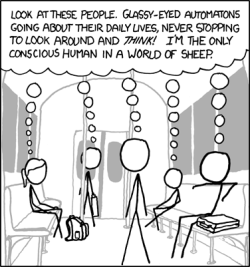Instead of focusing on poverty in general, as worried about in my last post, my focus will be shifted to minimum wage--
Why is minimum wage ($7.25) the way it is now?Since my last post I've found an assortment of articles and almost finished my book
Nickeled and Dimed, which reports grimly about the lives of minimum wage workers, many of which work in harsh conditions without the ability to make ends meet without either sharing housing/being homeless, working two jobs, and/or skipping out on many things we may consider necessities. These sources have helped establish background knowledge for when I will soon look more in to the specific causes/historical background of the minimum wage's changes.
A useful graph I found started me off nicely by helping me visualize an overview of minimum wage over time:

When looking at the blue line, the minimum wage has visibly increased from $.38 to $7.25, but as you can see, since the '80s there have been 2 long periods (horizontal blue lines) of time where it had not been adjusted to keep up with inflation. The 'real value' (dollar value adjusted for today's inflation) of the minimum wage appears in red, and over the two longest periods of time when congress didn't update the minimum wage, its real value plummets a lot, reversing 4 or so increases mandated by congress from around 1956 leading up to the peak in '68.
Interestingly, the author of
Nickel and Dimed began her investigation of what it's like to live as a member of the working poor in 1998, which on the graph is just after the second extended period of congress inaction begins (which lasts 10 years). She mentions briefly in her book that the rhetoric of that time was all about prosperity-- and yet I doubt minimum age workers shared prosperity with the rest of the country as their already-minimum earnings decreased in value, especially as much as the upper class (which she calls "the owning class" from her perspective as a journalist-working-as-maid for 6+$ an hour). Sadly, the maids she works with, with their limited job skills and perpetually recurring health/housing/food problems, when asked how feel when they clean mansions, say they are inspired that they themselves may, with hard work, enjoy that much property in the future, which near-certainly will not happen (the graph portends their fortunes having an opposite trend).
Anyway, from this, my currently emaciated vegan thesis is:
'The minimum wage is the way it is because we didn't adjust for inflation between 1981-1990 and 1996-2006 and it was probably within many peoples' interest for it to be that way or something.' needz moar meat
At least from here I know I have to look at how/why the minimum wage was created to begin with in 1938, what was going on in the years leading up to '68 that made the minimum wage so high, and why, from 1981-1990 and 1996-2006, minimum wage wasn't being adjusted for inflation for ~twice as long as usual. What was going on during those times, politically/economically? What legislation was in place? What were peoples' rationales for increasing or not increasing minimum wage? And when minimum wage
was adjusted in 1990, 1991, 1995, and 1996, why were the increases relatively small? Why was there a 5-year-long plateau from '91-'95 after such small increases? And what was going on in 2007-- why is our current minimum wage only as high in real value as it was in '59?
Other things I will hopefully end up looking in to:How many people work minimum wage jobs and remain below the poverty line?
How adequate is the minimum wage to allow people to live well?
Why have several states mandated, instead of the minimum wage, the "living wage," which demands higher pay than the minimum wage? How might the effects of "living wages" demonstrate minimum wage isn't high enough?
How did the minimum wage change in times of increased prosperity or depression?
How are people impacted by changes in the minimum wage-- does it reduce poverty?
How much do minimum wage increases help the economy or, as some might claim (however erroneously/accurately I don't know), harm it? (Opposing Viewpoints has poisoned my brain.)
Why are there periods on the graph where the minimum wage is increased with more frequency than others?
Are we going to adjust it for inflation relatively soon, or will we go further than that and raise its value? (conc?)
What roles have unions played with this, if any?
How do chain/corporate businesses view unionized workers?
Have different interpretations of Christianity/Jesus contributed to income inequality? (criticized in both
Capitalism: A Love Story and
Nickeled and Dimed)
Some of these sub-topics aren't ones that answering will necessarily affect my thesis, but they'll hopefully allow me to look critically at decisions made by the government. A few are too off-topic, though, and I'll just hope they pop up while I'm looking at other things.














